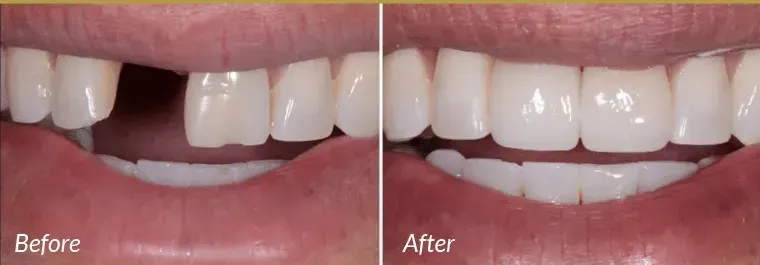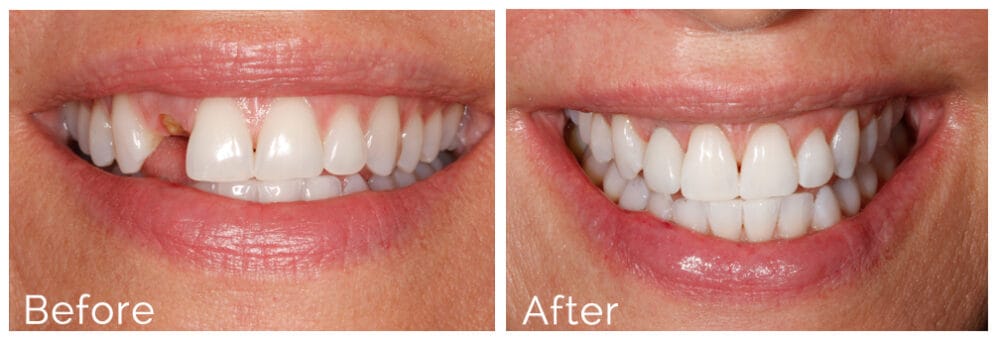Dental implants are a revolutionary solution for replacing missing teeth, offering durability, functionality, and a natural appearance. They provide a permanent alternative to dentures or bridges, allowing individuals to eat, speak, and smile confidently. With advancements in technology, implants have become a popular choice for those seeking to restore their oral health and improve their quality of life.
Cost of Dental Implants
The cost of dental implants varies depending on several factors, including location, the complexity of the procedure, and the materials used. On average:
- Single Tooth Implant: Prices range from $3,000 to $4,500 per tooth, including the implant, abutment, and crown.
- Multiple Implants: Costs for replacing multiple teeth can range from $6,000 to $20,000, depending on the number of implants required.
- Full-Mouth Implants: A full set of implants can cost between $25,000 and $50,000, with advanced procedures like All-on-4 or All-on-6 offering lower-cost solutions for full-mouth restoration.
Results of Dental Implants
Dental implants are designed to mimic natural teeth in both appearance and function. Here’s what you can expect:
- Natural Look and Feel: Implants blend seamlessly with surrounding teeth, providing a realistic and aesthetic appearance. They’re custom-made to match the size, shape, and color of your natural teeth.
- Enhanced Functionality: Unlike dentures, implants are anchored to the jawbone, offering stability and allowing you to chew, bite, and speak without worry. They prevent bone loss, maintaining facial structure over time.
- Longevity: With proper care, dental implants can last 20 years or more, making them a worthwhile investment for those seeking a permanent solution to tooth loss.
- Improved Oral Health: Implants do not rely on adjacent teeth for support, unlike bridges, preserving the integrity of neighboring teeth and reducing the risk of further dental issues.



Cost of Dental Implants
The cost of dental implants varies depending on several factors, including location, the complexity of the procedure, and the materials used. On average:
- Single Tooth Implant: Prices range from $3,000 to $4,500 per tooth, including the implant, abutment, and crown.
- Multiple Implants: Costs for replacing multiple teeth can range from $6,000 to $20,000, depending on the number of implants required.
- Full-Mouth Implants: A full set of implants can cost between $25,000 and $50,000, with advanced procedures like All-on-4 or All-on-6 offering lower-cost solutions for full-mouth restoration.
Factors Affecting Cost:
- Type of Implant System: Premium materials or advanced techniques increase the price.
- Location of Treatment: Urban clinics or high-cost regions may charge more than rural areas.
- Experience of the Dentist: Highly experienced specialists often charge higher fees.
While the upfront cost may seem significant, the long-term durability and benefits of implants often make them more cost-effective than alternatives like dentures, which require frequent adjustments or replacements.
Budgeting for Dental Implants
Planning your finances is essential when considering dental implants. Here are some tips to help you manage the cost:
- Dental Insurance: While most insurance plans do not fully cover implants, some may offer partial reimbursement for specific parts of the procedure, such as crowns or extractions. Check with your provider for details.
- Financing Options: Many dental offices offer financing plans or partner with third-party providers like CareCredit, allowing patients to pay for implants in monthly installments.
- Flexible Spending Accounts (FSA) or Health Savings Accounts (HSA): These accounts can be used to cover a portion of the cost, providing tax advantages.
- Compare Quotes: Obtain estimates from multiple dental professionals to find the best price without compromising quality.
- Travel for Treatment: Consider seeking treatment in locations known for affordable dental care, such as certain U.S. states or countries with reputable dental tourism.
Maintaining Dental Implants
To maximize the longevity and benefits of your dental implants, proper maintenance is essential:
- Oral Hygiene: Brush and floss regularly to prevent gum disease, which can compromise implant stability.
- Regular Checkups: Visit your dentist for routine cleanings and exams to monitor the health of your implants.
- Avoid Harmful Habits: Refrain from smoking, as it increases the risk of implant failure, and avoid chewing on hard objects that can damage the crown.
Conclusion
Dental implants are a transformative solution for restoring your smile and oral functionality. While the cost may seem substantial, the results—enhanced appearance, improved oral health, and long-term durability—make them a worthwhile investment. By understanding the procedure, planning your budget, and exploring financing options, you can achieve a confident, functional smile that lasts a lifetime.

